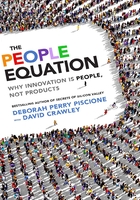
What the Fluid Economy Looks Like
We see a less structured world for those who want to excel, not one that involves going to a traditional school or university and then committing to a company in the hope of rising up through the ranks. The days are over when you could offer someone a paycheck and just expect them to perform. Many in the younger generations now want to make a dent in the universe rather than just earn their pay. Firms that can enable people to be bold can achieve audacious new thinking by tapping into each person’s passions, desires, and interests. Firms that show people that there’s something in it for them are the firms that will win. But you won’t and can’t win without providing psychological safety.
The gig economy means that contractors and consumers can now be paired online for services ranging from driving someone to their hotel to developing mathematically sophisticated computer algorithms. The emergence of this type of work requires leveraging all the skills and talents of each individual. We expect that T-shaped people—who offer a vertical, hard skill set such as programming, but who also have a horizontal range of curiosity for exploring other interests, such as marketing, sales, financial forecasting, and customer empathy—will succeed in this more fluid economy. In an Uber-like fashion, a young adult may perform many mini apprenticeships that might be widely unrelated but give them exposure to various skills and let them see things from a different perspective. They would be able to draw on all these skills to make themselves a more rounded individual who is better informed, more engaged, and ultimately more fulfilled.
Just as traditional newspapers were challenged by the advent of online news media, traditional higher education will be challenged by an age of online learning. Schools such as Make School, a San Francisco–based, two-year college replacement program for founders and developers, are helping graduates become ready for growing their own companies—or helping them land programming jobs at Google and other leading companies. Free of debt, Make School students don’t pay any tuition but provide 25 percent of their earnings from their first two years out of school. You can make lots of arguments for why kids should go to a traditional four-year college for reasons other than academics, but kids are learning at much faster rates in academics today than they did a decade ago. Additionally, millennials and their younger cohorts of Generation Z are developing interests and passions that let them grow into their authentic selves earlier in life in comparison with previous generations.
As more routine work is performed by computers, the value of people will land less on their hard skills and more on their human skills. Creativity, design thinking, and collaboration will be far more important than where one went to college or what you majored in. In 2020, according to Inc. magazine, “the ability to come up with solutions, ideas and responses will be highly sought after and propel you” to become a more valuable asset as a worker or entrepreneur. Cross-cultural competency and social intelligence will be an asset as business will continue to operate on a more global scale.
Cross-cultural competency and social intelligence will be an asset as business will continue to operate on a more global scale.